Fusion 360 is a modeling program used for technical modeling in the fields of mechanical engineering, woodworking, industrial design, and more. It is highly used by hobbyists and people involved in CNC thanks to its CAM toolsets and wide range of pricing options.
Fusion 360 is organized in workspaces that provide a wide range of functionalities. As such, learning all there is to know about the program can be difficult, and finding good resources to learn from may be even more so. We’re here to help you with this last part, as we’ve selected the best courses and programs to learn Fusion 360.
Considerations
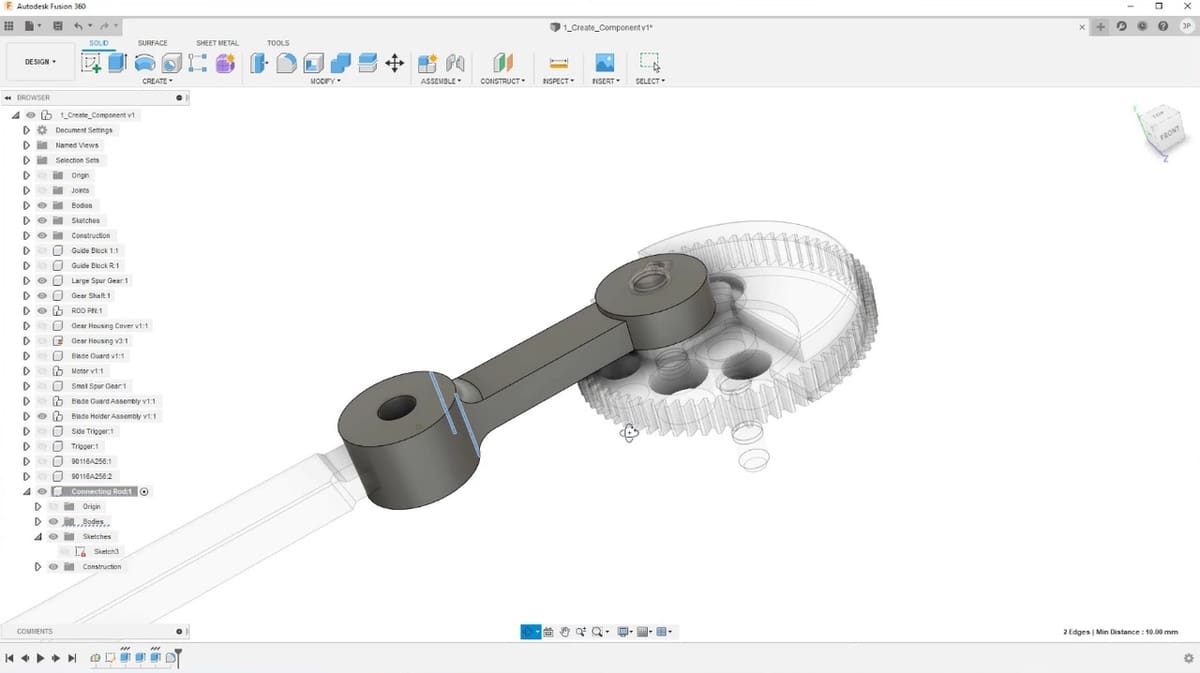
In putting together this list, we paid attention to a few key factors. These are also things that you might want to be thinking about as you decide which course is right for you.
- Users’ opinions: Obviously, other people’s experiences and reviews are an important factor to consider. A course may look promising on paper, but you may find that in reality it’s not that engaging or doesn’t live up to expectations. That’s why it’s important to listen to people who’ve actually taken it!
- Price: For the fundamentals, it’s easy to find free instructions online. For advanced features, however, you’ll mostly only find training through formal institutions. Professional training can get very expensive, so we’ve tried to keep a good balance of paid and free options for all ranges of knowledge.
- Level of expertise: The courses we’ve included here range from general, introductory material to specialized, advanced subjects. That way, whatever your experience level and interests, there should be something that works for you.
Additionally, to make sure that we made a good selection, we took into account Product Design Online‘s advice on choosing online education: The instructors should have formal knowledge in the subject they teach, especially for more advanced topics that need to be backed by theoretical knowledge. There should be a line of communication between the platform and the user, both for feedback and to ask questions. Finally, education based on tests, exams, or projects keeps the student engaged and it also serves as a way to check that you’re actually learning from the class.
So, with an understanding of what you’re in for, let’s check out the courses!
Fusion 360 for Absolute Beginners
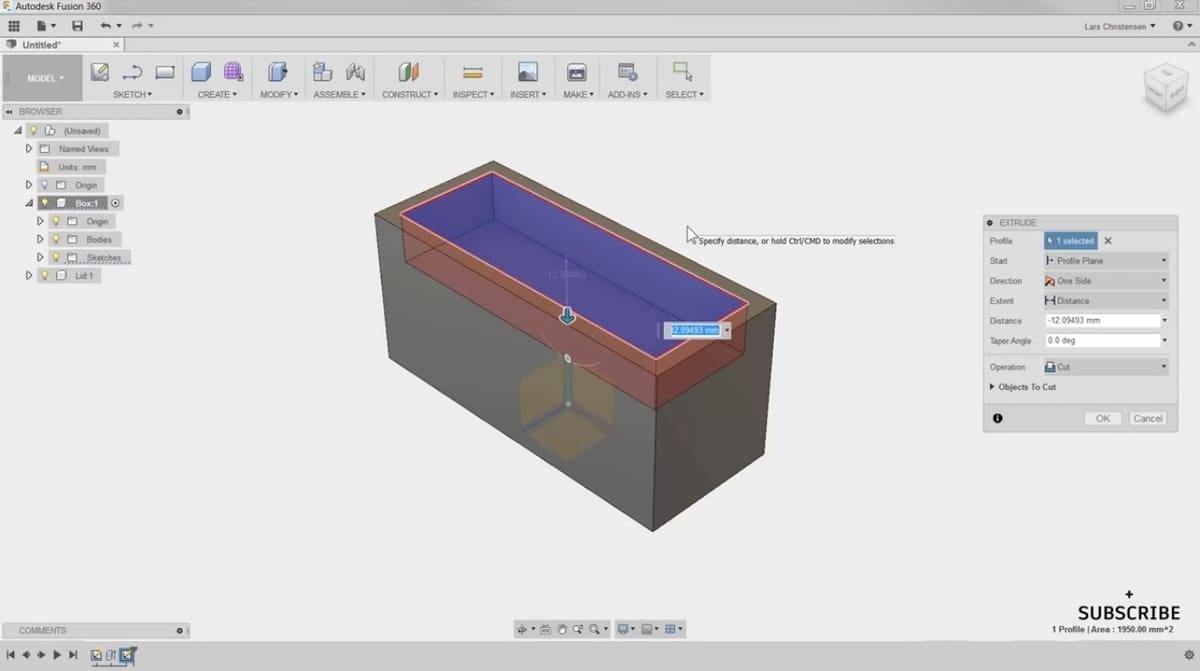
The Lars Christensen YouTube channel is the most recommended place to start learning Fusion 360. In this case, we’re recommending the series “For absolute beginners”, which consists of three videos. In reality, there are many topics you could learn in his channel, and he also does live sessions to solve practice exercises with his audience.
The community recommends him for being really thorough and clear about basic concepts, although they warn it can start to drag because the professor sometimes rambles on a bit. So, the main disadvantage people point out is it can take a long time to get through one of his videos, and some people only have short periods to practice during their day. However, aside from the time, people vouch for the quality of the teaching.
- Price: Free
- Length: 1 hour
- Content focus: General introduction
- Where to find it: YouTube
Learn Fusion 360 in 30 Days
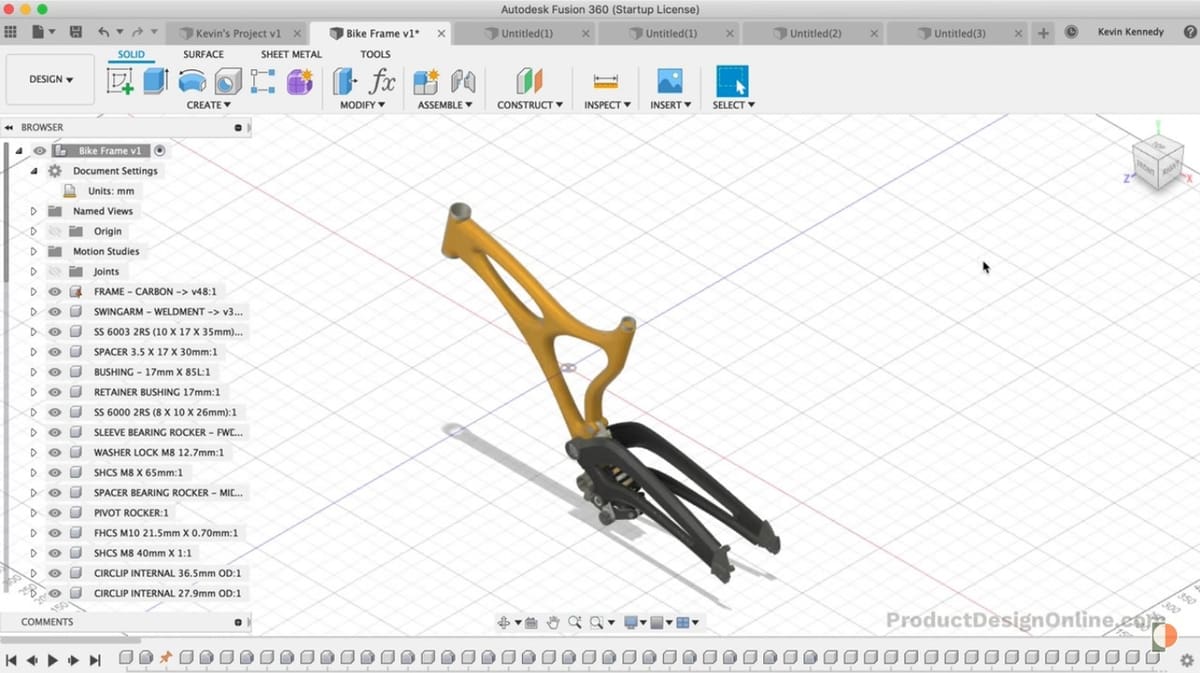
Product Design Online is another trusted source of Fusion 360 education. In this case, we’re again recommending their series to learn the absolute basics, but through their channel, you can also find resources to dig deeper into Fusion 360’s features, like animations, CAM, 3D printing, and more.
“Learn Fusion 360 in 30 Days” is a great alternative to the previous recommendation, as you can do it in short spasms during 30 days, or cram it if you need the knowledge fast. According to users’ reviews, the instructor is quick and to the point, and you get a lot of information and features covered per video.
- Price: Free
- Length: 7 hours (~15min/day for 30 days)
- Content Focus: General introduction
- Where to find it: YouTube
Designing for 3D Printing
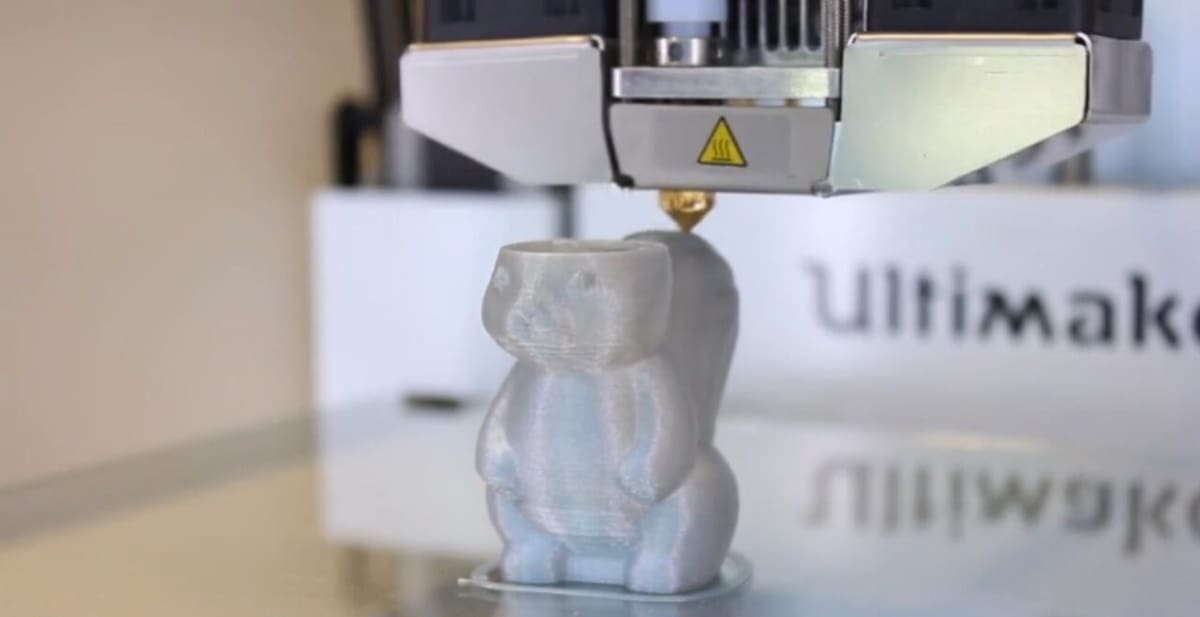
Although similar in nature to the two previous recommendations, this course from Vladimir Mariano has an extra level of specificity. This is a beginner’s level tutorial series for Fusion 360, but geared specifically towards how to model parts that are printable and how to prepare them for printing directly in Fusion 360.
People who come from a background in 3D printing but have no experience modeling themselves recommend this course. It has 5,000+ reviews and an average rating of 4.6/5, so needless to say it seems of good quality. It’s based on 10 design projects for printable and practical designs.
- Price: ~$120 (significant discounts often available for new users)
- Length: 4 hours (+ 7 articles to read)
- Content focus: Introduction to modeling for 3D printing
- Where to find it: Udemy
Complex Topology and Class-A Surface Modeling
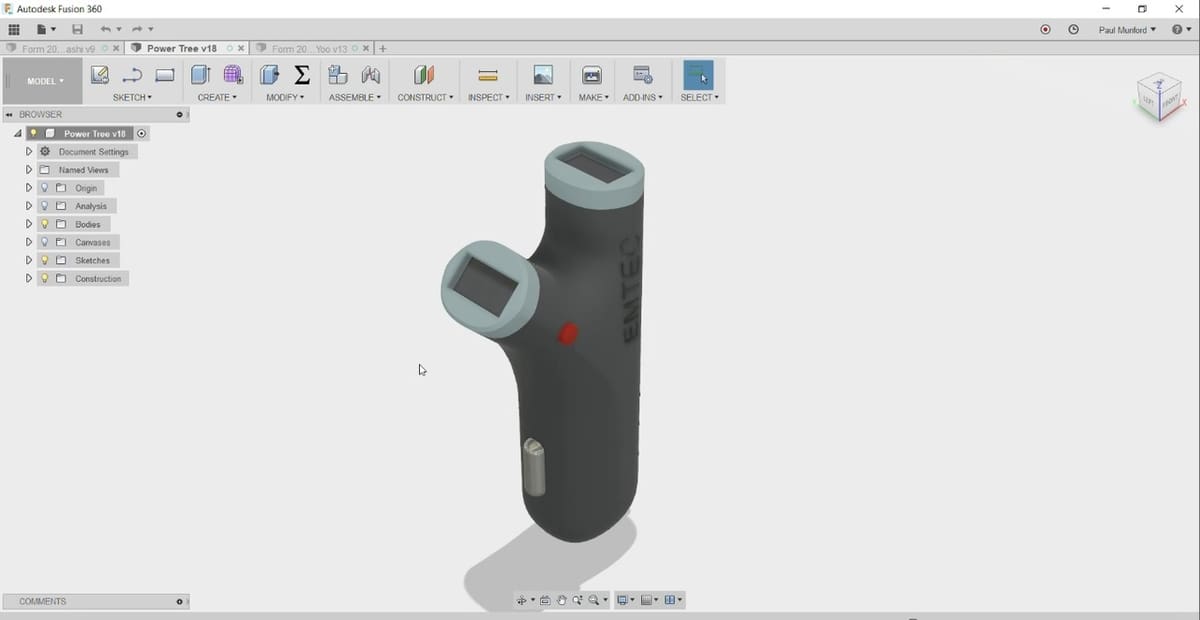
Being able to sketch and extrude is just the tip of the iceberg. There are many nuances to complex topology that you need to understand to be able to model complex mechanisms. This includes working with non-manifolds and NURB surfaces, which are mathematical ways of modeling. Although they’re really not as difficult as that makes them sound, they’re still no task for beginners.
According to the community, this class is a great place to learn about them. It’s offered by Paul Munford from Autodesk University, an official learning community by Autodesk that offers basic to advanced courses on any of its programs. This course covers surface modeling and complex topology like NURBS modeling. People comment that it also covers theoretical explanations on how the complex topology works and they appreciate this detail, as not many resources online cover beyond how to use it in software.
- Price: Free
- Length: 1 hour (+ additional materials to read)
- Content focus: Surface modeling of complex topology (advanced)
- Where to find it: Autodesk University
Generative Design for Manufacturing
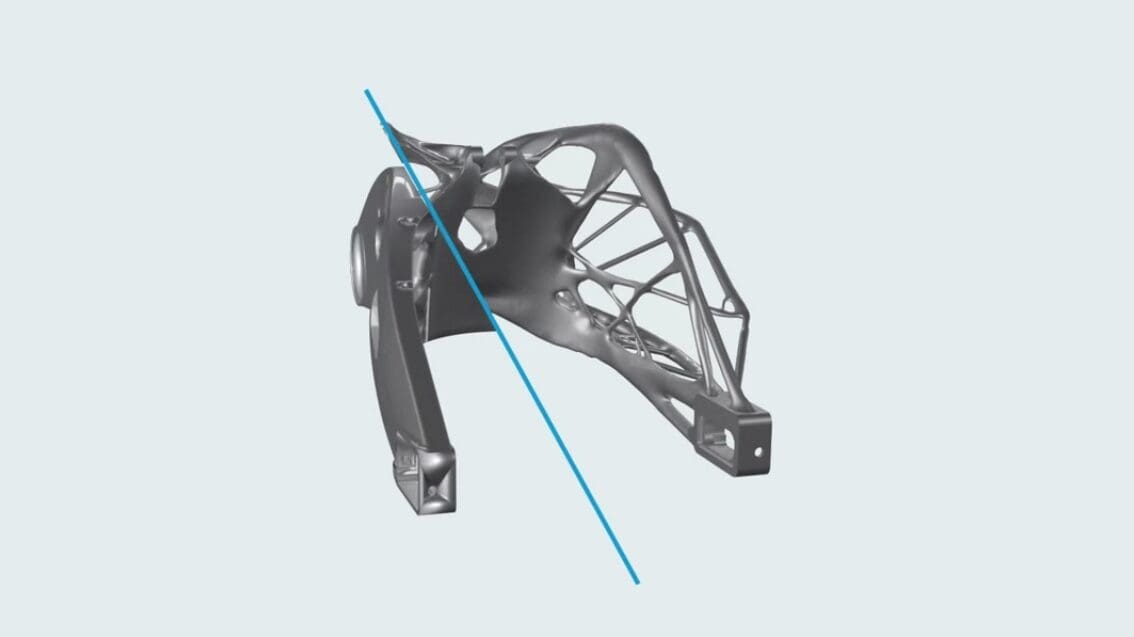
With the aim of promoting education on and quality use of all of its programs, Autodesk is offering some official courses through the platform Coursera. Among these courses, one that stands out is about generative design. Generative design is a newer subject that many people learn empirically, lacking the mathematical fundamentals to support their design, which is why there aren’t many useful resources online.
This is a specialization program consisting of four Coursera courses to learn generative design. It covers the generative design methodology, theoretical knowledge, and of course, the modeling process itself in Fusion 360.
It’s composed of four parts: Autodesk Generative Design for Manufacturing, Generative Design for Performance and Weight Reduction, Generative Design for Industrial Applications, and Generative Design for Part Consolidation. All highly rated, and all evaluated with a final project. You get certified both at the end of each course and at the end of the whole specialization.
- Price: ~$40/month subscription
- Length: Four parts of varying lengths
- Content Focus: Generative design (advanced)
- Where to get it: Coursera
Product Rendering Techniques
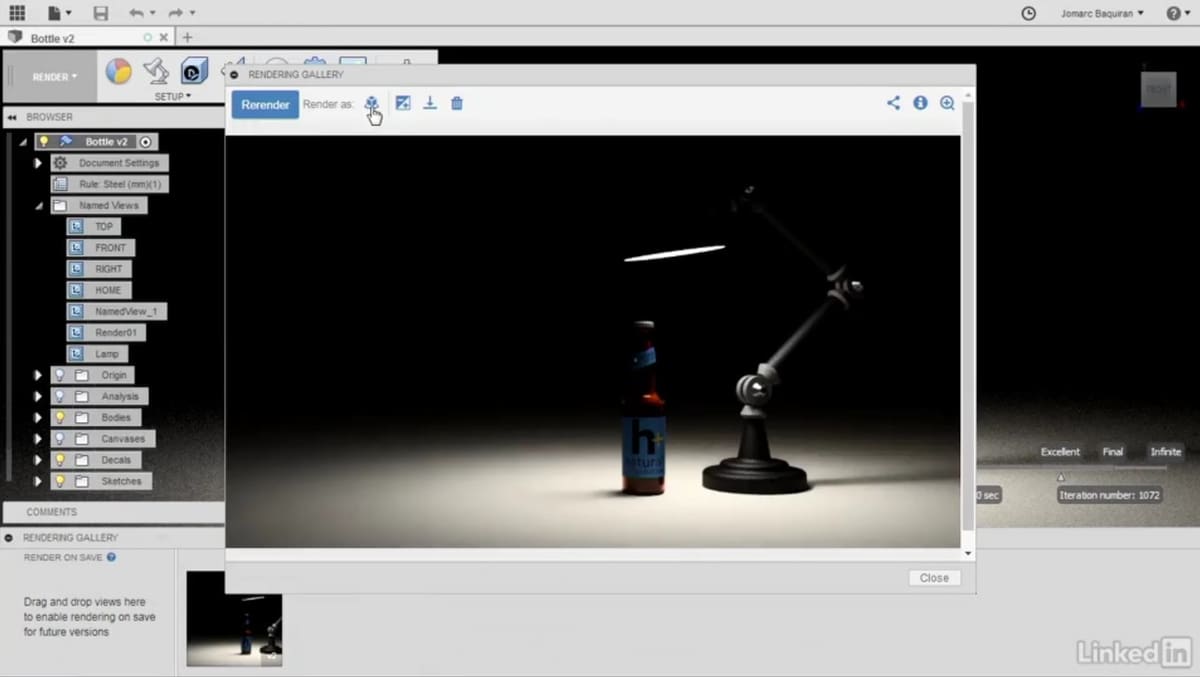
LinkedIn Learning evolved from Lynda, which was known for its high-quality courses. Now under the umbrella of LinkedIn, it’s essentially the same platform, except that when you complete a course it’s automatically shown in your LinkedIn profile.
One of the main uses of Fusion 360 is product design. This refers to the design of parts that don’t need to be mobile but do need to be functional, usually with some grade of ergonomy, like pencils, chairs, bottles, and glasses. How you present that product to potential buyers can make or break your chances, even with a great design. That’s why good renders are so important.
This course from mechanical design engineer Jomarc Baquiran quickly takes you through the modeling process of a bottle and some rendering pre-requisites, before diving straight into rendering with hands-on practical projects. As a result of this course, you’ll have three different renderings of the same product, for very different settings.
- Price: ~$30/month subscription
- Length: 2 hours
- Content focus: Introduction to rendering
- Where to find it: LinkedIn Learning
Learning Fusion 360 CAM
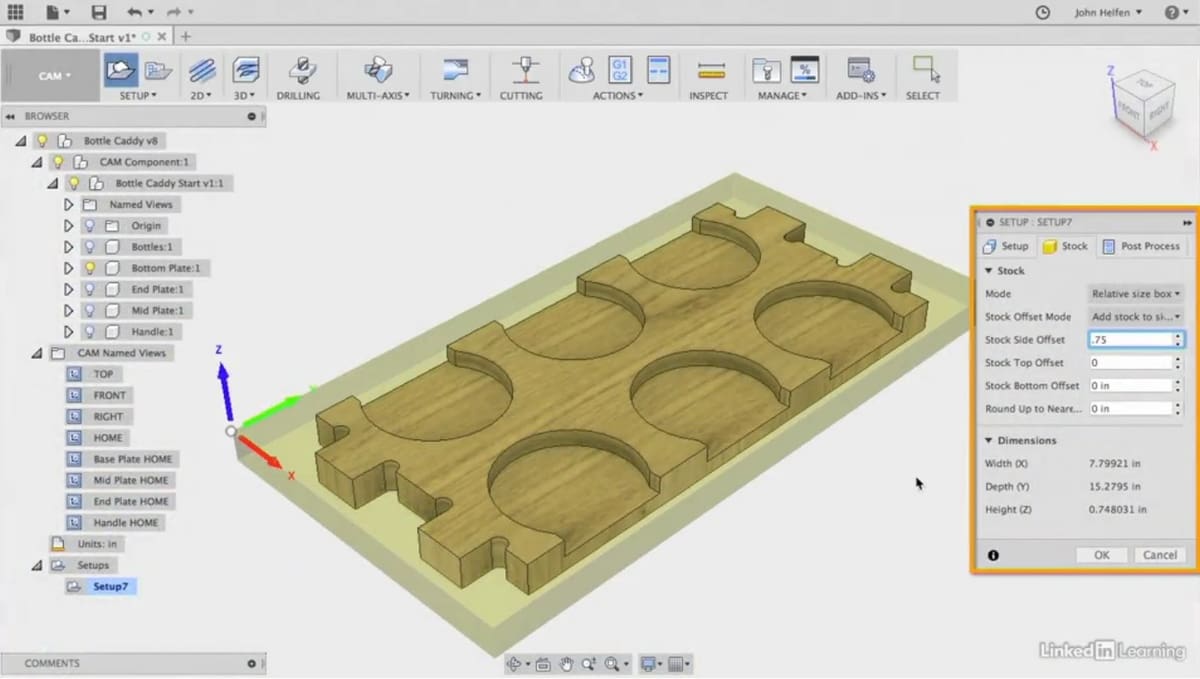
Fusion 360 is organized into workspaces, and there’s a lot to do and learn in each one. One of its most popular workspaces is the Manufacturing workspace, where the CAM tools are located. CAM stands for computer-aided manufacturing, and it’s the process with which you create the instructions for a machine to create something. Fusion 360 has a great CAM toolset able to program 2D and 3D operations.
This course from Autodesk educator John Helfen is project-based, and the project developed throughout this course looks very promising to both make and use: a bottle caddy made in wood. First, he takes you through CAM concepts, then he gives you the sample model, and then the following sections consist of preparing each part for CNC, using different CNC machining methods.
- Price: ~$30/month subscription
- Length: 1.5 hours
- Content Focus: CAM (advanced)
- Where to get it: LinkedIn Learning
Assembly Series
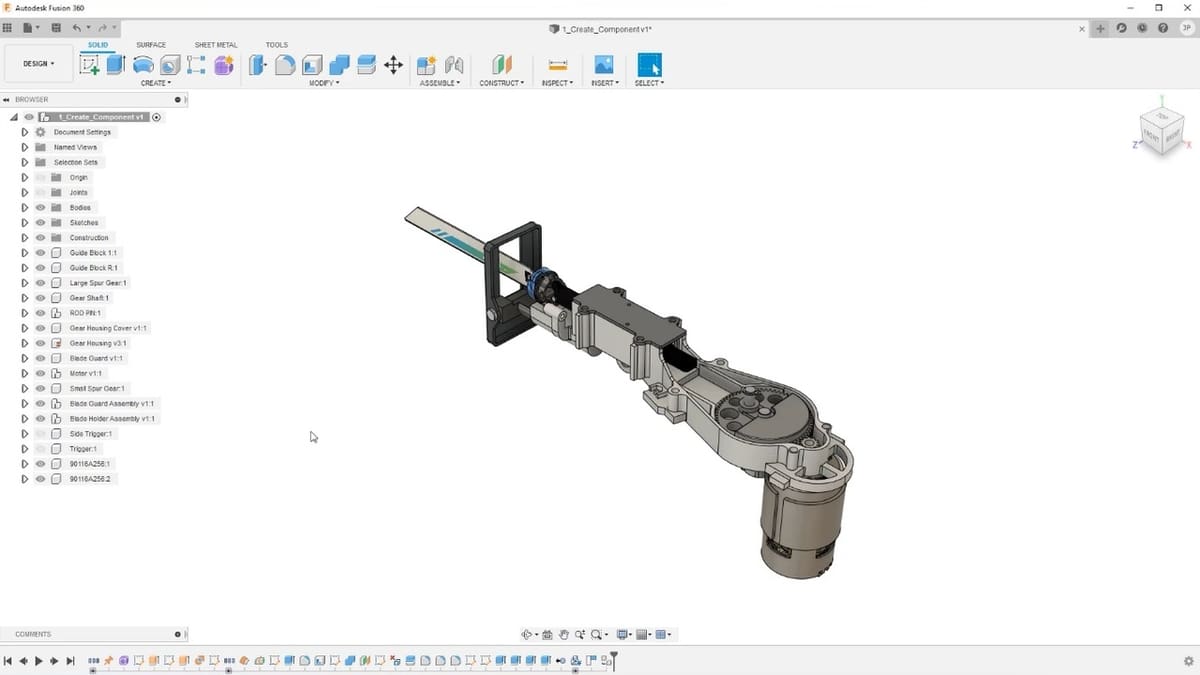
When you design a complete machine, system, or mechanism, it’s not enough to create each of its parts. It’s also necessary to assemble them, sometimes even before all parts are done, to be able to determine distances, verify dimensions are correct, and check that the movement of the machine is as expected.
This is a series about assembling, specifically for mechanical modeling, which is quite different from, for example, product design. When you design something static like a bookshelf, you can do it all in one piece, break it apart with one of Fusion’s functions, and that’s it. When you design, for example, a clock, you have to individually design each gear, the case, and the hands, then assemble it all together. More than that, to correctly be able to simulate if the gears are moving at the correct time, you also need to be able to add gear relations to them, which is an advanced mechanical mate.
All these nuances are covered in this tutorial series, taught by a range of experienced educators. Importing parts, basic mating, mechanical mating, and so on are explained. It consists of 14 parts, all delivered in video, and with written and visual transcripts.
- Price: Free
- Length: 1.5 hours
- Content Focus: Introduction to assemblies
- Where to get it: Autodesk
Technical Drawing Series
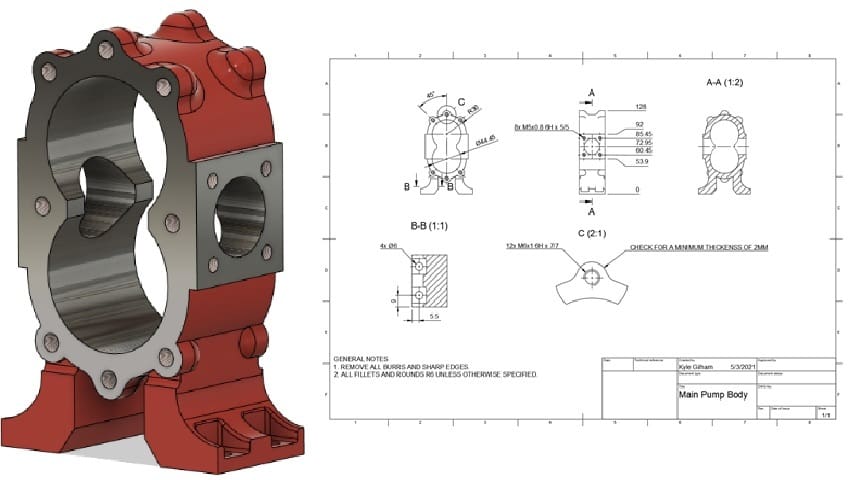
Usually, having a 3D model isn’t enough. You can’t replicate it or access useful information just from what is essentially a 3D drawing. And sure, you can use measurement tools to find out thicknesses, diameters, and other details as you go, but that’s not the most practical way to do it.
With Fusion 360, as with many other 3D CAD programs, you can create a 2D drawing from an existing 3D model. Creating a 2D drawing projects the main views of a 3D model, and with the necessary tools, you can also create cut views, detailed views, and more to be able to communicate your design.
This concise tutorial series has six parts in which the various instructors teach you how to add dimensions, annotations, BOM, cut views, and more.
- Price: Free
- Length: 0.5 hours
- Content focus: Introduction to drafting
- Where to find it: Autodesk
Electronic Fundamentals
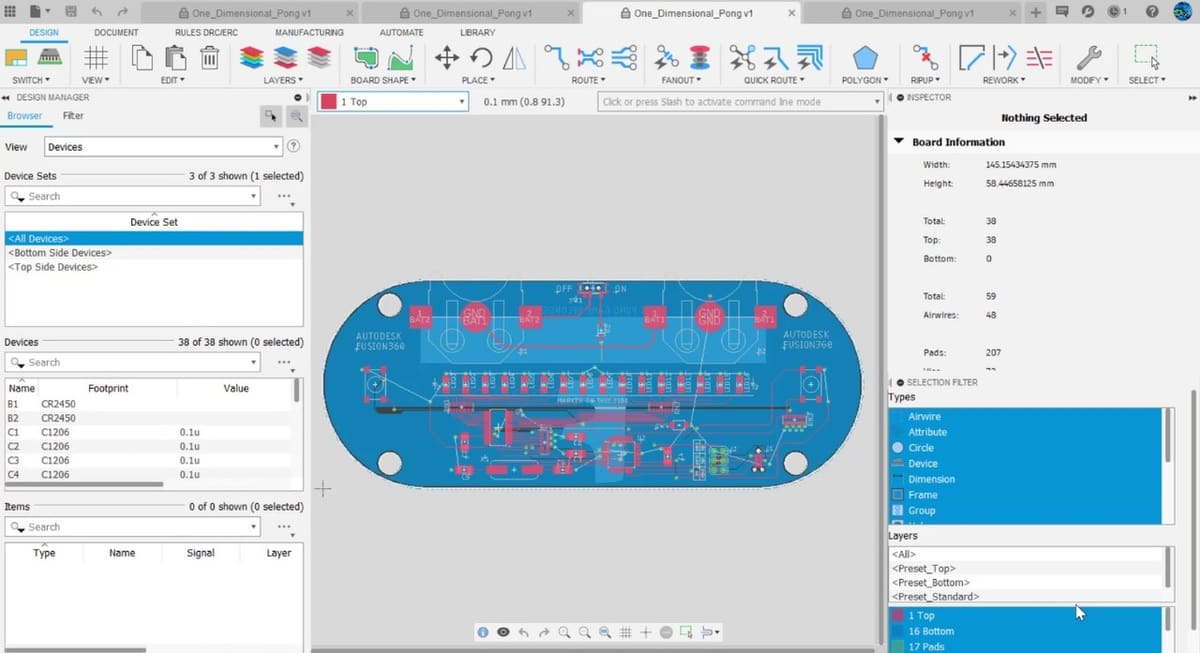
Fusion 360 isn’t primarily known for electronic CAD, but it’s hard to find good ECAD software out there, especially for students who need access to affordable options or student licenses. That’s why Fusion 360’s impressive suite of ECAD tools is a great asset to have in your arsenal, and there aren’t nearly enough resources online to learn it.
As a further incentive, Autodesk’s official resources are very good and are a trusted source of knowledge with a guaranteed professional level, as they know the ins and outs of the program and explain it in a clear and concise way.
This tutorial by Edwin Robledo takes it one step further, not only explaining how to use Fusion 360 to draw ECADs but also teaching the mathematical and theoretical fundamentals behind them so that you can move beyond replicating existing systems and create your own.
- Price: Free
- Length: 1.5 hours
- Content focus: Introduction to electronic drawing (ECAD)
- Where to find it: Autodesk
License: The text of "The Best Fusion 360 Online Courses & Trainings" by All3DP is licensed under a Creative Commons Attribution 4.0 International License.
